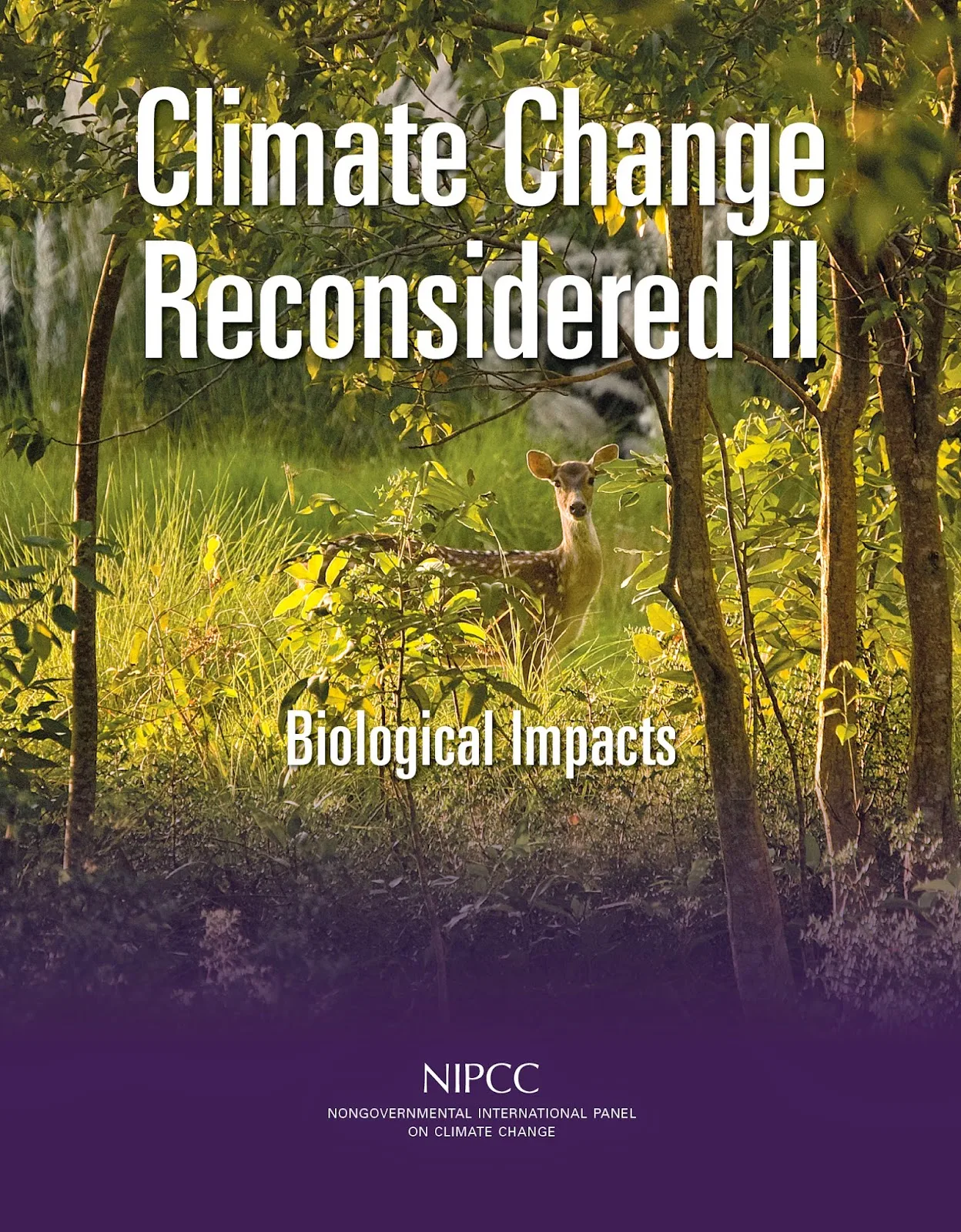Here
are the core elements of it:
- As the product of infinitely wise design, omnipotent creation, and faithful sustaining (Genesis 1:1–31; 8:21–22), Earth is robust, resilient, self-regulating, and self-correcting. Although Earth and its subsystems, including the climate system, are susceptible to some damage by ignorant or malicious human action, God’s wise design and faithful sustaining make these natural systems more likely—as confirmed by widespread scientific observation—to respond in ways that suppress and correct that damage than magnify it catastrophically.
- Earth’s temperature naturally warms and cools cyclically throughout time, and warmer periods are typically more conducive to human thriving than colder periods.
- While human addition of greenhouse gases, particularly carbon dioxide (CO2), to the atmosphere may slightly raise atmospheric temperatures, observational studies indicate that the climate system responds more in ways that suppress than in ways that amplify CO2’s effect on temperature, implying a relatively small and benign rather than large and dangerous warming effect.
- Empirical studies indicate that natural cycles outweigh human influences in producing the cycles of global warming and cooling, not only in the distant past but also recently.
- Computer climate models, over 95% of which point toward greater warming than has been observed during the period of rapid CO2 increase, do not justify belief that human influences have come to outweigh natural influences, or fears that human-caused warming will be large and dangerous.
- Rising atmospheric CO2 benefits all life on Earth by improving plant growth and crop yields, making food more abundant and affordable, helping the poor most of all.
- Abundant, affordable, reliable energy, most of it now and in the foreseeable future provided by burning fossil fuels, which are the primary source of CO2 emissions, is indispensable to lifting and keeping people out of poverty.
- Mandatory reductions in CO2 emissions, pursued to prevent dangerous global warming, would have little or no discernible impact on global temperatures, but would greatly increase the price of energy and therefore of everything else. Such policies would put more people at greater risk than the warming they are intended to prevent, because they would slow, stop, or even reverse the economic growth that enables people to adapt to all climates. They would also harm the poor more than the wealthy, and would harm them more than the small amount of warming they might prevent.
- In developed countries, the poor spend a higher percentage of their income on energy than others, so rising energy prices, driven by mandated shifts from abundant, affordable, reliable fossil fuels to diffuse, expensive, intermittent “Green” energy, will in effect be regressive taxes—taxing the poor at higher rates than the rich.
- In developing countries, billions of the poor desperately need to replace dirty, inefficient cooking and heating fuels, pollution from which causes hundreds of millions of illnesses and about 4 million premature deaths every year, mostly among women and young children. To demand that they forgo the use of inexpensive fossil fuels and depend on expensive wind, solar, and other “Green” fuels to meet that need is to condemn them to more generations of poverty and the high rates of disease and premature death that accompany it.
-----------------------------------------------------------------------------------------------------------------------
The
first point above is a bit too mystical for my tastes, but it is
gentle and positive, and I imagine people of many other faiths could
go along with it. The other 9 points deserve to be studied by anyone
who teaches climate topics to schoolchildren, with a view to finding
ways to get these key insights across to them.
The
statement continues with direct appeals to Christians to take
actions, and this is less suited to general teaching except perhaps
for discussion with senior pupils.
Here, on the other hand, is another Christian leader urging his flock to join the march in New York next week, a march intended to produce even more destructive and dreadful policies ostensibly based on overblown fears about our carbon dioxide: http://blog.archny.org/index.php/peoples-climate-march/comment-page-1/
So, it is not all good!
Here, on the other hand, is another Christian leader urging his flock to join the march in New York next week, a march intended to produce even more destructive and dreadful policies ostensibly based on overblown fears about our carbon dioxide: http://blog.archny.org/index.php/peoples-climate-march/comment-page-1/
So, it is not all good!





